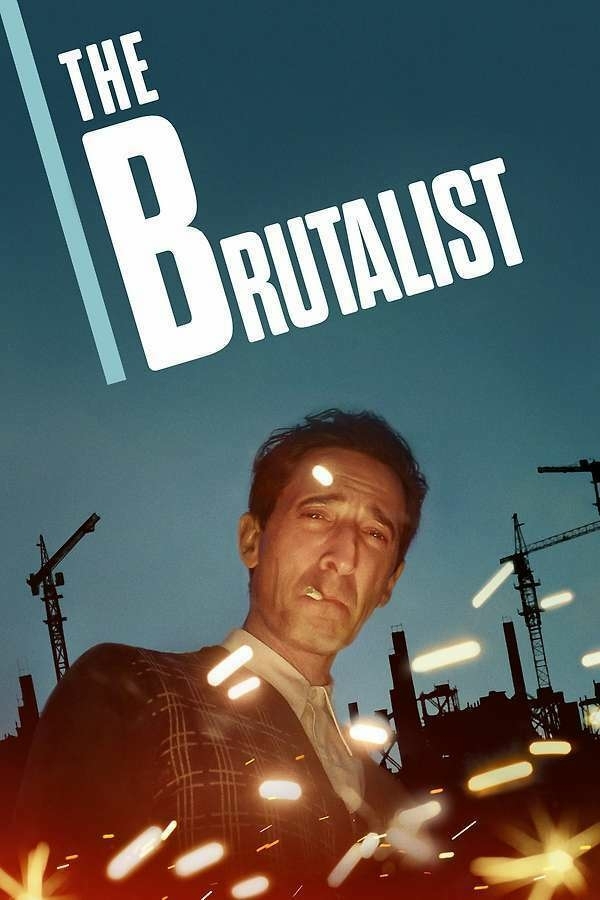The Brutalist, 2024 - ★★★★½

"In his memoirs, he described his designs as machines with no superfluous parts, that at their best, at his best, possessed an immoveable core; a "Hard Core of Beauty." A way of directing their inhabitant's perception to the world as it is. The inherent laws of concrete things such as mountains and rock define them. They indicate nothing. They tell nothing. They simply are."
Brutalist is an impressive film with a captivating storyline. I'm amazed by how they crafted such compelling and complicated background stories for something that isn't based on real events or people.
On one hand, the movie's message suggests that, just as buildings with strong cores and foundations can withstand any situation, challenge, or threat, love is equally strong. Love is the foundation of life, and you build your existence around it. If you have love in your heart, your life becomes meaningful and worthwhile, and you will have the resilience to withstand the test of time.
Comparing love to buildings is a poignant analogy. An architect can design anything as long as the foundation is solid. Unlike art, buildings are not highly subjective, as they do not require extensive interpretation; they simply exist as structures designed to last. There is no need to search for meaning or interpretation. Similarly, love remains constant, regardless of circumstances. Whatever challenges may come, love endures.
On the other hand, the movie slapped you back to the reality by deconstructing the László Tóth's life. It highlights his struggles in an unwelcoming society marked by social classes, cultural differences and racism, which constantly threaten his life and aim to crush his spirit.
"You're my plaything, you're beneath me, I can do whatever I want to you and I take the power you have and give it to myself."
The reality is disheartening; no matter how hard one tries to prove their worth—something they should not have to do to live their lives—they are often perceived as outsiders or lesser beings. When repeatedly told they are lesser, they may internalize this belief, leading them to stop advocating for themselves and conform to others' expectations. It is a heartbreaking situation from which many find it difficult to survive, let alone escape.
It feels as though the world has put him on trial to see if his foundations—much like his buildings—can truly endure and transcend space and time. Is it worth the suffering? And at what cost?
—-
Adrien Brody delivers a compelling performance as László Tóth, a Holocaust survivor and architect. He skillfully portrays the struggles of an immigrant in a challenging environment, capturing a wide range of emotions, from hope and determination to despair and frustration, as well as moments of happiness and profound sadness. His nuanced acting allows audiences to witness the spectrum of pain and joy, along with subtle shifts in expression as his character adapts to changing circumstances. Through his performance, he effectively conveys László's resilience, artistic passion, suffering and the despair that arises when everything begins to unravel.
The cinematography, musical score, and sound perfectly complemented this narrative, enhancing the emotions in each scene with stunning style—bold, strong, and poignant—much like László's buildings. These elements help establish the mood and tone alongside the storyline. Their evocative style not only enriches the thought-provoking discussions in the film but also helps seamless transitions between grandiosity and melancholy, making the film memorable, especially the opening scene that I particularly love.